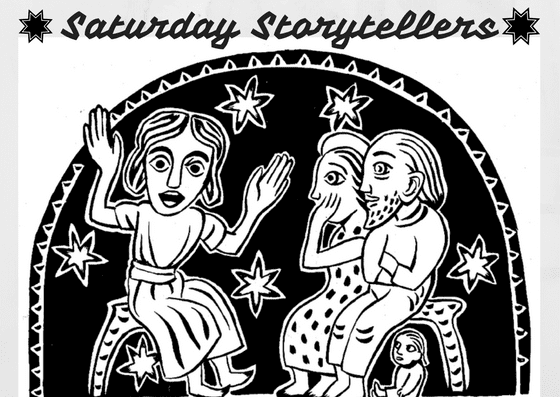The protagonist travels within and without, exploring relationships and loss – feeling trapped in this gripping story by Inderjeet. Find out more in this exclusive for Different Truths.

“Do you have enough for the journey?”
My father was solicitous, knowing I was still working menial jobs.
“I’m fine, Appa.”
I had enough to get home. It would be a long day’s train ride through the parched countryside, thinking about my mother along the way, but I needed to be back in the tiny flat I called my own. Even though I had only lived there a few years, it was where I could listen to the sea swishing and whispering through the night, promising me that freedom was possible and that the traumas of childhood could finally be put away.
“Here you are, son.”
It was an enormous wad, more than I had ever handled. Enough to kickstart a new life, but I would have preferred to earn it on my own.
“Appa!” I stared at the magenta bills with their pictures of Gandhi, the man’s toothy smile making me even sadder.
“It was what your mother wanted.”
My father had handled it well. The priest had come home and sprayed holy water…
My father had handled it well. The priest had come home and sprayed holy water, and we had both repeated the man’s incantations as the cloying scent of jasmine filled the room.
“Bear up, my boy,” my father said, patting me on my shoulder as my tears welled up and the priest looked away. It was a common reaction, as I had been disfigured since childhood by a glandular disease, causing my jaws, hands, and feet to become enlarged and distorted.
My father sat with his hands stretched out, his brow wrinkled. There was a weight to his presence, given his lifetime of terrible events, the Second World War, where he saw action as a young man, the suicide of his first wife shortly after his return, his marriage to my mother three years later, and now her passing.
When the priest left, he turned to me.
“She was a beautiful girl. So full of charm. A musician. And a wonderful cook. Remember all those puddings she made for you?”
I remembered most of all the diaphanous green flash of her sari…
I remembered most of all the diaphanous green flash of her sari, the way she let me watch her wrap it around her.
My father asked for water. He drank slowly and noisily, holding the tumbler up without touching his lips. As the water fell, I saw a glint of tears.
He was not one for farewells and had already turned away, heading towards his study. It was his hideaway, filled with the smell of cheroots and musty volumes carrying memories of happier times.
There was no room for the stash in my jeans pockets, so I slipped it into the side pocket of my leather jacket. My backpack would have been preferable, but I had had to sit on it to close it, filled as it was with mementoes of my mother. Her lacquer music box played Für Elise when opened, with a tiny sandalwood dancer swivelling around. A demure sarong-clad Rangoon doll. An old edition of Great Expectations, with her name, scrawled in childish green letters on the front page. It was a small sample of what she had left behind, much lighter than the gruesome jar of ashes on the mantelpiece.
In the taxi, the dismal sidewalks drifted by.
In the taxi, the dismal sidewalks drifted by. It was not yet dawn, and the streetlights were still on, their yellow edges blurring into petal-like shapes. A man in shorts was walking briskly. At the traffic stops, the children were already at work begging. The night air floated in with its stale sewer breath. I had no great love for this town where I had grown up, yet I always felt guilty leaving it, wondering if it were the last time I would see my parents.
Now my mother was no more, and the light in the street, twilight mixed with the artificial, seemed transient and purposeless.
Sitting in that taxi, I wanted the dank atmosphere to dissipate and to be back tasting my mother’s desserts, remembering the delight on her face as my father and I attacked her bombe with those subtle ice cream and custard flavours that lingered on the tongue. The happiest times were Sundays, when my father, finished with his paper and lighting up a cheroot, would settle down on the floor to a game of Scrabble or Parcheesi, which my mother invariably won, chuckling with glee as she turned the board over.

I also remembered how I would stand behind my mother at the dressing table as she did her hair and put on her earrings. She looked perfect in the mirror, whereas my distorted mirror image was the version the world saw of me, and it was far from who I was.
My ugliness, bullying in school, and repeated failures there had left me withdrawn, with a so-called borderline personality, with my own set of peculiar quirks that only a mother could understand.
“Wait and see,” my mother would tell my father while he looked over another set of bad school results. “Our boy will shine; just give him a chance.”
My father had caught us more than once lazing together in the bed in the afternoon.
My father had caught us more than once lazing together in the bed in the afternoon.
“Shame on you!” he roared, his eyes hateful and glaring. “With that deformed boy!”
My mother stared at him defiantly, watching him stomp out. The bed was her space, for they slept separately. He would not have me be with her, I think not so much out of jealousy but because he wanted me to be free of those apron strings. But I didn’t want freedom then, and my mother complied. Hugging her close, my ungainly body splayed across the bed; I was soothed by her breast, lulled to sleep by her sighs and gentle snores.
When I woke up, the taxi had just arrived at the station. The morning sun was already reflecting on the giant clock. It was an old Victorian building, grey stone with an enormous turreted roof.
“What time is your train?” The driver was staring hard.
“11:30.” It was hard opening up to strangers, but the man seemed friendlier than most.
“You have plenty of time.”
Inside the station, it felt more like a house.
Inside the station, it felt more like a house. I climbed up the wrought-iron staircase to a small café, from which I could see the platforms. There was one parked train with its doors closed, and the other platforms were empty.
The bills felt thick in my pocket, reminding me that even though my mother was no more, I still had a future that awaited me back in my flat, one with far fewer financial worries. I could kiss my factory job goodbye and start to live appropriately, and get to interact with people who value intellectual culture. “Take it, son,” my father had said, delivering his final farewell present on my mother’s behalf, one that would make her wishes finally come true. How odd that the loss of the mother, whose unconditional love only intensified my shame, was now providing, within days of her death, a new foothold in my journey towards freedom!
I ordered a coffee and sat down. Attached to the ceiling were giant water pipes. There were so many of them, crisscrossed in black and white and then running towards the edge of the roof from where they descended in long cylindrical projections. Their dense geometry reminded me of a Cubist painting. Perhaps the pipes were used for transporting hot water. I had read somewhere that in Russia and some other countries, they piped steam into all the buildings to prevent people from freezing to death.
When the bill came, I remembered the wad.
A group of young men, short and almost dwarfish, were standing idly by, watching me sip coffee. They might be waiting for the train, but if so, why were they standing around in the café? When the bill came, I remembered the wad. I panicked instantly and realised it was still sticking out of my pocket. I needed a quiet spot to open my backpack and store it properly. I paid the bill, got up, and pushed through the crowd to the main hallway, heading towards the toilet where I could have some privacy.
The hallway had travellers from all over, some in beards and thick turbans, others with goatees and small caps, the women dressed in festive colours, and all looking shrunken and lilliputian, staring up at me as if I had landed from some other world with a fate entirely different from their own.
I had to step carefully, for tiny children were lying on the floor and a dhoti-clad beggar squatting with his chin in his hands. His eyes were a pale yellow. The sight of a fellow human starving was too much to bear.
“Wait, I have something,” I said, surprised at my courage. I reached into my pocket.
Damn! It was gone.
Had someone picked up my bags here in the hall?
I searched in the other pocket, which was empty as well. Had someone picked up my bags here in the hall? I couldn’t recall anyone coming that close, and usually, people kept their distance.
Had I left it on the café table? With maybe the waiters or the men standing around making a go for it? I ran back there, pushing my way through. A couple was sitting where I had been and smoking.
I had to ask; there was no way around it. “My packet … did you see it?”
The woman’s eyes were smouldering. She had been crying. Her companion sighed and put his hand, the cigarette smouldering in his knuckles, on hers.
I turned away. The waiters stared with nothing shifty in their gaze. One of them seemed genuinely concerned.
“Sir, are you sure you left it here? Because nobody takes others’ things like that.”
I hurried back to the hallway I had come from. I could hear snatches of conversation. A petite young woman, lips drenched red, was discussing a play.
“It’s being performed at the Second Circle. I’m doing a reading from it this evening.”
Someone else was reciting a poem about heaven and earth being united in one place.
What an intelligent company! That was the sort of society I wanted, to be among the ones who still valued art and culture. I would have stopped and listened if I wasn’t in a hurry to find the money.
I scanned each face, the lipstick woman, the little men with turbans, and even the tiny children…
I scanned each face, the lipstick woman, the little men with turbans, and even the tiny children as if they might yield further clues about the missing wad. A greeter was standing outside a shop selling religious trinkets. There was a vast laughing buddha in the window, with a bag in one hand for collecting people’s troubles.
The greeter summoned me. “It brings good luck, Sir!”
“Is there a lost property office?”
“What did you lose?”
Never mind. I should never have opened my mouth.
“Sir, if you lose something important, you can visit the police. They have an office in that corner.”
The room was padlocked, and the only person in uniform was the little stationmaster, dressed like a Boy Scout and carrying a green flag in one hand and a red one in the other.
How was I going to get home without a ticket? I couldn’t possibly beg. Nor could I return to my father in humiliation. That would mean long silences in front of that mantelpiece; sitting there reminded me of earlier days and the glaring look in my father’s eyes.
I was in limbo, trapped, and going nowhere, stuck in an infernal station…
I was in limbo, trapped, and going nowhere, stuck in an infernal station, just when I was ready for a new beginning.
It must have been unusual in these parts to see a grown man, especially one with such huge limbs and cavernous jaws, cry, but that is what I did, an ugly series of sobs that convulsed my gigantic head and shoulders. Those tears were not just for the vanished notes but for the loss of my mother, myself, and all of humanity, for everyone whose sufferings gnawed at the soul and whose dreams could be quickly shattered.
“What happened?” someone asked.
“He has lost something,” the waiter said.
And then I saw the pipes. I hadn’t realised they had come down to the floor. And that they each had a mouth through which the bills came slithering out. How was this even possible? It was as if someone had vacuumed up my pockets and then flushed them down the plumbing. I ran towards my fluttering possessions, amazed yet grateful, and now others were helping me, crouching and gathering up the bills and waving them in the air as if to make sure they were genuine.
“Please give them back; they are mine,” I said politely, hoping that they would not hurt me by saying that. I reached for a bill from the red-lipped lady’s hand, but it was gone. None of the bills was there, not even the ones I had picked up. They were gone.
I turned towards the pipes; their mouths were like thin slits, nothing there.
I turned towards the pipes; their mouths were like thin slits, nothing there. The notes had been there an instant earlier, and now, like an apparition, they had vanished. But money was no apparition. It stood for survival, success, and leisure, for everything that seemed to matter.
“Take it, son,” my father had said. Because he knew it was like water in my hands, like all the life slipping through people’s fingers far too quickly, and then, before one knew it, all those dreams of liberation would be lost forever, and one would end up stuck, unable to return home.
I turned around, noticing that the crowd had grown, their faces now pale and blurred, huddled together like mannequins. I hurried away from the hallway, approaching the platform, which remained deserted, its solitary train locked and waiting.

Picture design by Anumita Roy





 By
By
 By
By
 By
By
 By
By